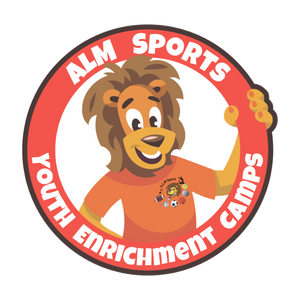Physical activity among children is on a decline, with indoor activities and gadgets preferred by many young ones. Phones, computers, and video games rank above playing games or sports with friends outside. This is unfortunate due to the many benefits that such physical activity can have on your child, both physically and mentally. Apart from keeping your child fit and reducing the risk of developing medical conditions associated with a sedentary lifestyle and childhood obesity, engaging in sporting activities can be very beneficial for a child psychologically, particularly in boosting their self-esteem and confidence.
The very nature of sports, the competitiveness, gives participants and athletes a goal to work towards. It helps build focus and determination and a mindset to strive to do better and improve on the existing foundation. Children will learn to improve what was their ‘best’ and make it even better. Playing sport exposes you to many different people, building relationships and support systems that can do a lot to reassure and help build confidence among young children and teenagers. Following defeats in competitions, coaches, friends, and family stand by to encourage you to do better subsequently and help you understand what might have gone wrong.

Many of the mental lessons that competitive sports bestow upon young children and teenagers are applicable to real-world situations and can help them navigate through hurdles in life with confidence as they know they have the answers or necessary skills to surpass them. Children will begin to learn at an early age their strengths and weaknesses and learn how to capitalize on those strengths and improve on those weaknesses. The knowledge that they excel athletically is enough to boost a child’s confidence, as they can recognize their own talent and how it makes them unique.
Sporting activities can be solo events such as tennis or swimming, but most sports among school-age children are team endeavors, like basketball or football. Engaging in these activities from a very young age teaches children how to work on a team, how to co-operate with people of different types, and how to fit into a structure and play their role to the best of their ability. Such structuring can teach a child that each role regardless of its apparent magnitude, is just as important to make the machine work and that no matter how minuscule they may believe their talent to be, it is just as integral as the next person’s. This infuses self-confidence into a child, to own whatever talent or role they play and to never undermine themselves, whether on the pitch or working in teams in real-world situations.
In the end, all these experiences pool together to build a child’s self-esteem. The successes; the praise from parents, coaches, and teammates; the social aspects of the team, with new teammates friends that are made; and the self-improvement and physical fitness. All these coalesce to improve a child’s confidence and physical self-worth and make them feel more confident in their ability and capabilities. The benefits outweigh the possible risks, and children should be encouraged to spend less time looking at their screens and more time playing sports with their friends. That's why I would Highly recommend the ALM Sports Summer Camp which encompasses a variety of sporting activities and mentors to bring out the leader from your child.


